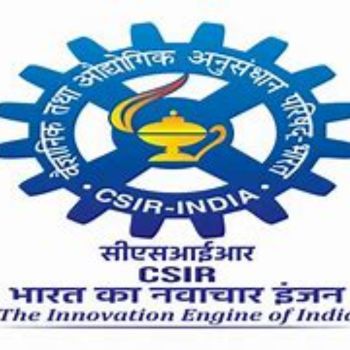Ph.D. in Arabic is a doctoral level research program that usually takes three to five years to finish. Students who want to learn more about Arabic literature, language, translation, classical works and current Arabic prose and poems should take this program. Students learn a lot about Arabic culture, language structure and how it has changed over the ages by doing hard academic study and thesis work.
People who want to get into a Ph.D. program in Arabic must have at least a 55% overall grade point average in a Master degree (MA/MPhil) in Arabic or a similar area from a recognised university. Some colleges have written entry exams followed by interviews to see how good a candidate is at study, how well they speak the language, and what kinds of things they are interested in. A CUET-PG or a similar diploma may also be taken into account during the admissions process.
Costs for a Ph.D. in Arabic vary by college and can be anywhere from INR 20,000 to INR 2,00,000 for the whole study. Some of the best universities in India that offer this course are Aligarh Muslim University, and Jamia Millia Islamia. People know these colleges for having great faculty, helping with research and an academic setting that is focused on Arabic studies.
People with a Ph.D. in Arabic can work in marketing, education, foreign policy, translation, Islamic studies and international organisations. They can become professors of Arabic, linguists, translators, cultural advisors, content analysts, or experts on the Middle East. Many of them also work in ministries, think tanks, or on studies of religion and other faiths. Starting salaries range from INR 7-10 LPA, based on the field and the job. In foreign or government jobs, you can make more.
Table of Contents
- Ph.D Arabic Key Highlights
- What is a Ph.D Arabic ?
- Why Study Ph.D Arabic?
- Who should study Ph.D Arabic?
- Ph.D Arabic Eligibility Criteria
- Ph.D Arabic Entrance Exams 2025
- Ph.D Arabic Colleges in India
- Ph.D Arabic Admission Process 2025
- Ph.D Arabic Syllabus
- Ph.D Arabic Job Opportunities in India
- Ph.D Arabic FAQs
Ph.D Arabic Key Highlights
Below are the key highlights of the Ph.D Arabic course in India:
What is a Ph.D Arabic ?
The Doctor of Philosophy in Arabic, or Ph.D Arabic, is the best degree you can get in Arabic literature and language. It takes three to five years to finish and is for people who want to learn a lot about Arabic language, society and writing. Research-based study is what the program is all about and it's perfect for people who want to learn a lot about Arabic language and literature, Islamic literature, Turkish literature and translating Arabic texts.
Students working towards their Ph.D. do original study and write a thesis on a certain topic in Arabic writing or language. Students are mostly on their own during the course, but they can also go to classes, workshops, and conferences and get help from their managers. They learn how to read old manuscripts, look into how the Arabic language has changed over time, understand culture texts and get involved in current discussions in Arabic literature.
Students who take this class learn how to do well in critical thinking, academic writing, translation and language theory. Students learn the skills they need to work as teachers, researchers, publishers, diplomats or in language-related jobs at home or abroad. A Ph.D. in Arabic helps scholars add to scholarly information, learn about other cultures and protect the language.
Why Study Ph.D Arabic?
Getting a Ph.D. in Arabic can help students get good jobs in translation, teaching, cultural relations and protecting the language. This study is great for people who want to learn more about the history, writing, and language use of people who know Arabic.
- The need to learn and speak more than one language grows because of globalisation. This makes Arabic classes more important. There is a lot of important stuff to learn, from old Islamic books to new Arabic writing and society. Both the public and private sectors are looking for experts who can translate Arabic sources, help people from different cultures talk to each other or give advice on issues in the Middle East.
- People with a Ph.D. in Arabic often work as university teachers, language researchers, translators, culture advisors or content editors for organisations in the United States and other countries. They are trained to write original research, work on language policy, and help people of all countries learn to read and write.
- As part of the study, students learn a lot about the Arabic language, different regional accents, history, linguistics, rhetoric, and comparative literature. This makes them ready to be big names in the area of Arabic studies. Students who get their Ph.D. in Arabic can make a difference in their field and in other cultures, whether they want to protect the past or start a global conversation.
Who should study Ph.D Arabic?
People who are really interested in the Arabic language, literature, society or Islamic or Middle Eastern studies should get a Ph.D. in Arabic. It's best for people who want to do in depth study, make a difference in the academic world, and read and understand both old and new Arabic works. This training will help the following types of students the most:
- College students who already know a lot about Arabic and want to learn more about ancient poems, historical manuscripts, holy works or modern Arabic literature at a high level.
- People in the Arabic language and culture studies field who want to work in academics as teachers, researchers or program writers.
- People who want to work as translators, publishers, or content creators and need to know a lot about Arabic language, meaning, phrasing and style.
- People who want to make a change in Islamic studies, global studies or contact between people, especially in areas that have to do with the Arab world.
Ph.D Arabic Eligibility Criteria
To enroll in a Ph.D Arabic in India, candidates have to meet some educational and admission requirements. Without fulfilling these criteria, it is not possible to enter the course. Mentioned below are the Ph.D Arabic eligibility criteria:
- With at least 55% overall marks (50% for protected categories), a Master's degree in Arabic or a closely similar subject like Islamic Studies, Arabic Literature, or Comparative Literature from a recognised university.
- Those who want to apply must have a good background in Arabic language, grammar, and writing at the graduate level.
- Most of the time, students need to do well in entrance exams like CUET PG, or an academic Ph.D. entry exam.
Ph.D Arabic Entrance Exams 2025
For pursuing a Ph.D Arabic in India, various national/state/university-level entrance examinations are required to be taken. Some of the top Ph.D Arabic entrance examinations in India are given below:
Ph.D Arabic Colleges in India
Various institutions in India are offering a Ph.D Arabic course. Some of the best colleges in India for Ph.D Arabic have been mentioned below, along with their approximate course fee:
Click here to know more about PhD in Urdu
Ph.D Arabic Admission Process 2025
Admission process at University of Kerala for the Ph.D Arabic programs is as follows:
Step 1: Fill in your personal, educational and communication information on the official CSIR-NET Main website to complete the registration process. Upload the scanned copies of your passport-shaped photo and signature, and pay the required application fee.
Step 2: On the exam day, show up for the CSIR-NET Main Examination. University of Kerala and other universities require this entrance examination for admission.
Step 3: After the main results of CSIR-NET, go to the official website to see your All India Rank.
Step 4: Create an account on the Joint Seat Allocation Authority (Josa) website to start a centralized consultation process. Enter your desired institutions and courses while registering, such as the University of Kerala program of Ph.D Arabic
Step 5: Seat assignments will be done according to your air and preferences. If a seat is handed over, confirm your selection and use the online method to pay the seat acceptance fee.
Step 6: To complete the admission process individually, go to the nominated institution and physically verify your documents.
Step 7: Complete the remaining tuition payment as per the institute's payment plan to fulfill your nomination. Ph.D Arabic will provide formal admission confirmation as soon as the money is received and validated.
Required Documents:
- 10th and 12th mark sheets
- UG Certificates
- ID proofs
- Transfer certificate
- Character certificate
- Medical certificate
- Category Certificate (if applicable)
Ph.D Arabic Syllabus
The syllabus for Ph.D Arabic in India is more or less the same in the colleges offering the course. The syllabus may slightly differ depending on the curriculum followed by the institute. For reference, the syllabus for Ph.D Arabic at University of Kerala is given below:
Also read about Ph.D in Arts
Ph.D Arabic Job Opportunities in India
Ph.D Arabic graduates can have job roles in multiple fields, including Environmental Manager, Sustainability Manager, Environmental Scientist / Consultant and others. Some of the common job roles for Ph.D Arabic graduates in India are given below:
Ph.D Arabic FAQs
What sorts of jobs are there for people who have a Ph.D. in Arabic?
People who get a Ph.D. in Arabic can work as teachers, researchers, language experts, translators and people who make lesson plans. As advisers for language policy, Arabic media, or diplomacy, many of them work in international relations departments, centres that study culture and history, or other fields. Some people write or edit scholarly magazines, religious books or works that add to the study of ancient literature.
Is there any field work or hands-on training as part of the Arabic Ph.D. study?
Yes! Field study is something that a lot of Ph.D. students do, especially if their topic is about regional dialects, oral customs or cultural studies. They could go to places where people speak Arabic, talk to people, collect papers or read old history documents. Academic conferences, study paper presentations and sometimes teaching assistantships are also examples of practical practice.











